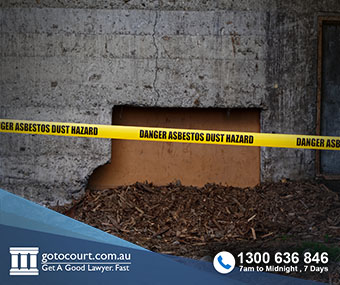Call our lawyers
now
or,
have our lawyers
call you
Duty of Care (Vic)
Updated on Nov 03, 2022 • 4 min read • 958 views • Copy Link
Duty of Care (Vic)
A duty of care is a legal obligation to avoid acts or omissions that could foreseeably lead to harm to another person. A breach of a duty of care that leads to harm to someone amounts to the tort of negligence. In Victoria, the law of negligence is governed by the Wrongs Act 1958, and by the common law. While in some circumstances it is clear whether or not a person owes a duty of care to another, in other situations it can be difficult to establish.
Established duty of care relationships
There are a number of categories of relationship where it is established at law that a duty of care exists. In situations that fall outside of established duty of care relationships, the existence or absence of a duty of care will need to be determined by the court.
Established duty of care relationships include:
- Teacher to student;
- Employer to employee;
- Parent to child;
- Occupier of premises to entrants;
- Road user to other road users;
- Manufacturer to consumer.
Does a duty of care exist?
There is no clear-cut formula for determining whether a duty of care exists between individuals. Whether a duty of care exists in a given situation is determined by courts with regard to the questions of reasonable foreseeability, proximity and public policy.
If a wrongdoer knows, or should have known, that their actions may cause harm to another person who is not in a position to protect their interests, there is a relationship of proximity giving rise to a duty of care. A duty of care can be denied on public policy grounds if the court considers it is not fair that a duty of care be found to exist.
In determining whether a duty of care exists, courts will consider:
- The kind of harm suffered by the plaintiff;
- The degree of control exercised by the defendant;
- The nature of the relationship between the defendant and the plaintiff;
- Ethical and moral considerations.
Standard of care
If a person or organisation owes a duty of care, it must apply a reasonable standard of care. What is reasonable depends on the circumstances. The court will ask the question ‘what would a reasonable person or organisation in the same position and having the same knowledge, do?’
If an organisation followed an established practice that is widely followed across the sector it is unlikely that it will be found to have failed to exercise a reasonable standard of care.
The court will also consider other factors in assessing the standard of care to be applied. These include the resources available to the person or organisation, the level of risk inherent in the actions undertaken and the utility of the defendant’s conduct
Breach of duty of care
When a standard of care is not met, duty of care has been breached. The defendant will be guilty of negligence if the harm suffered was foreseeable, the risk was not far-fetched and a reasonable person would have taken steps to ensure the harm did not occur.
Remedies for breach of duty
When a person (the plaintiff) sues a person (the defendant) for breaching a duty of care, the most common outcome is an award of monetary compensation. The amount of monetary compensation the plaintiff is entitled to will be assessed based on the following considerations:
- The effect of the detriment suffered on the plaintiff’s ability to earn money;
- The extent of any personal injury;
- The extent of any financial loss suffered;
- The extent of any damage to personal property;
- Whether the plaintiff contributed to their own harm (contributory negligence);
If you require legal advice in a civil law matter or in any other legal matter, please contact Go To Court Lawyers.

Affordable Lawyers
Our Go To Court Lawyers will assist you in all areas of law. We specialise in providing legal advice urgently – at the time when you need it most. If you need a lawyer right now, today, we can help you – no matter where you are in Australia.How It Works







1. You speak directly to a lawyer
When you call the Go To Court Legal Hotline, you will be connected directly to a lawyer, every time.


2. Get your legal situation assessed
We determine the best way forward in your legal matter, free of charge. If you want to go ahead and book a face-to-face appointment, we will connect you with a specialist in your local area.


3. We arrange everything as needed
If you want to go ahead and book a fact-to-face appointment, we will connect you with a specialist in your local area no matter where you are and even at very short notice.

























